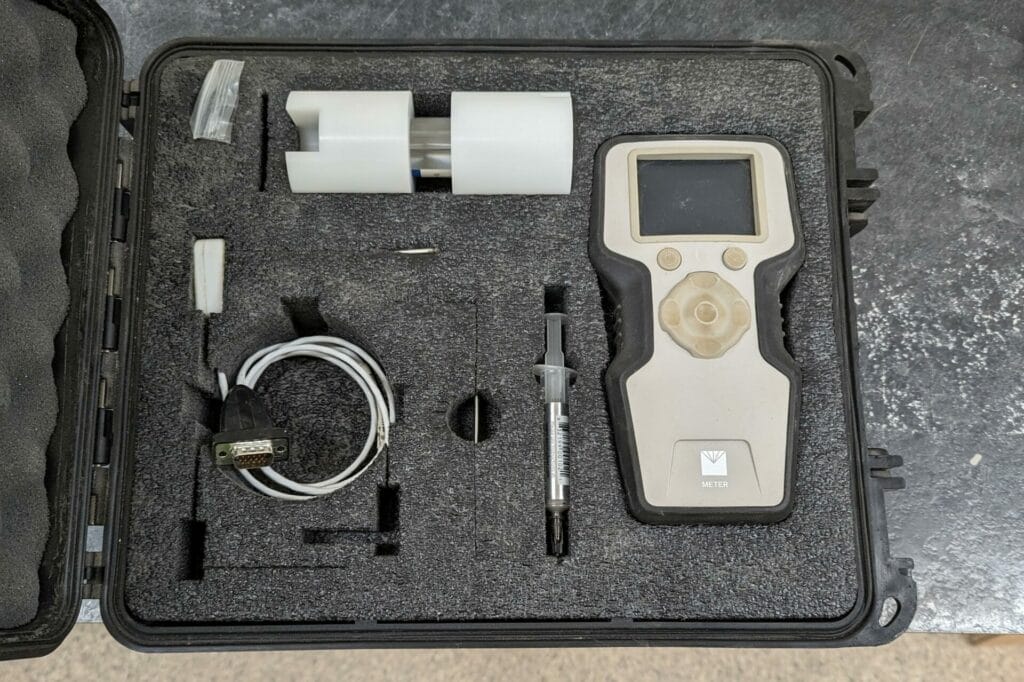
Accurately assessing heat transfer properties of soil is critical in the design of underground power cables which are becoming increasingly more common as part of renewable energy installations such as wind and solar as well as more generally in areas where large above-ground electric infrastructure is not desired for aesthetic reasons. It is also important in the design of geothermal heating and cooling systems.
How It Works
The heat transfer properties of soil and other media are represented using the thermal resistivity parameter. Thermal resistivity testing occurs in two environments: in situ (test pits or boreholes) and laboratory (recovered samples). Both methods use calibrated equipment with electronic sensors to measure heat transfer on a small scale which can then be extrapolated to a soil mass. Laboratory testing, preferred for its comprehensive analysis, can also be used to create a thermal dry-out curve where the thermal properties are measured repeatedly at multiple moisture contents. As power cables generate heat, the nearby soil dries out, reducing heat transfer and potentially causing a condition known as thermal runaway, which can lead to cable failures. Accurate resistivity measurements are critical to electrical system designers to ensure a reliable, efficient, and cost-effective design.
Choosing the Right Method
Laboratory and field testing both offer distinct advantages. Field testing provides nearly real-time data which is not dependent on sample preservation and can also be used for acceptance testing during fill placement, while laboratory testing allows for more controlled testing at a lower cost and is more common during the design phase of projects. The choice depends on specific project needs and constraints. Whether in a lab or the field, the right testing method provides valuable insights and peace of mind.
To dive deeper into this topic, you can watch this informative video: Thermal Resistivity Testing Video.
If you have a project that could benefit from thermal resistivity testing, feel free to reach out to Jon O’Brock at 616-456-5469. MTC can provide testing options to ensure peace of mind from the ground up.


